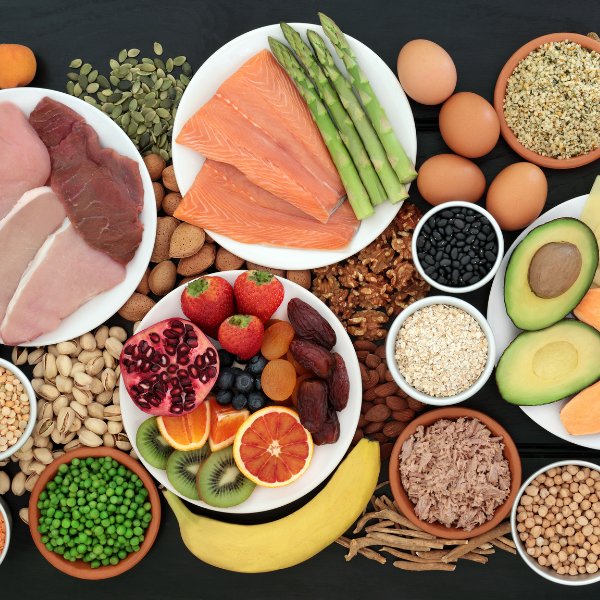If you work at a coffee shop, smoothie bar, or breakfast cafe, you've likely noticed the demand for non-dairy milk alternatives is higher than ever. Individuals across the globe have realized that numerous plant-based milk options are healthier and more eco-friendly than traditional cow's milk. They've been substituting cow's milk with non-dairy alternatives in their coffee, smoothies, teas, cereals, and other foods and drinks.
To meet the demand of customers, many foodservice establishments are adding non-dairy substitutes into their menus. However, some restaurateurs are hesitant to do this because the numerous milk alternatives out there can be overwhelming to choose from. In this comprehensive guide, we break down the seven best milk alternatives for restaurants and how to decide which dairy-free milk to purchase for your restaurant.
Why Should Restaurants Offer Milk Alternatives?
When non-dairy milk first became popular, many individuals believed it was just a trend that would fade away in a few months. However, the demand for plant-based milk alternatives continues to increase each year. According to the Plant Based Foods Association, in 2020, plant-based milk recorded $2.5 billion in sales and is purchased by 39 percent of U.S. households. Offering dairy-free milk alternatives at your foodservice establishment will allow your business to cater to those with dietary limitations, expand its reach, and stand out from other companies.
7 Best Milk Substitutes For Restaurants
Deciding which dairy-free milk alternatives to purchase can be challenging because each plant-based milk features a unique texture and flavor. To help you understand their differences and benefits, we break down the seven most popular plant-based milk.
1. Almond Milk
Almond milk is made from water and ground almonds. It has a light texture and slightly sweet and nutty flavor. Compared to cow's milk, it is lower in protein. However, almond milk is an excellent milk alternative for those looking to lose weight because it's low in calories, fat, and carbohydrates. It is commonly used as a substitute for milk in all types of food and drink recipes.
Almond Milk Health Benefits
- Rich source of vitamin E, magnesium, selenium, phosphorus, and copper.
-
Powerful antioxidant that helps protect against free-radical
reactions.
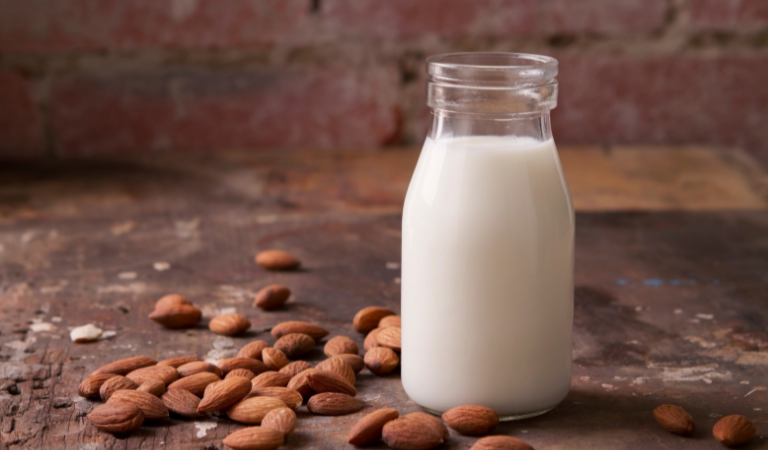
2. Cashew Milk
Cashew milk is made by blending cashews with water. It is known for its creamy texture that mimics dairy milk, making it a popular dairy-free substitute for creamer in coffee. It is slightly sweet and less nutty than other nut-based milk. Cashew milk is low in calories, protein, and features a variety of nutrients.
Cashew Milk Health Benefits
- Great source of fiber, copper, and magnesium.
-
Rich antioxidant that helps prevent cellular damage to the eyes.
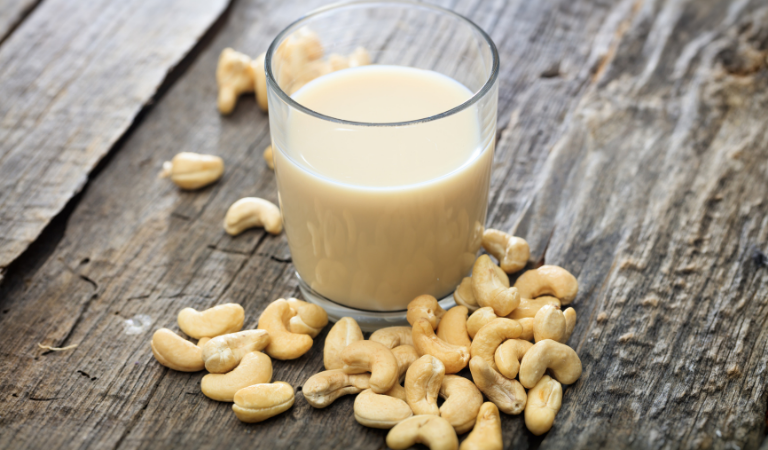
3. Coconut Milk
Coconut milk is commonly used in Southeast Asian and Indian cuisine. It's served as a beverage and used in numerous sweet and savory recipes. Coconut milk has a thick, creamy texture and sweet but subtle coconut flavor. It is made from water and coconut flesh. This plant-based milk alternative is low in protein, calories, and contains almost as much saturated fat as whole milk.
Coconut Milk Health Benefits
- Promotes brain development, boosts immune system, and maintains the elasticity of blood vessels.
-
Good source of fiber, iron, calcium, potassium, magnesium, zinc,
vitamin C, and vitamin E.
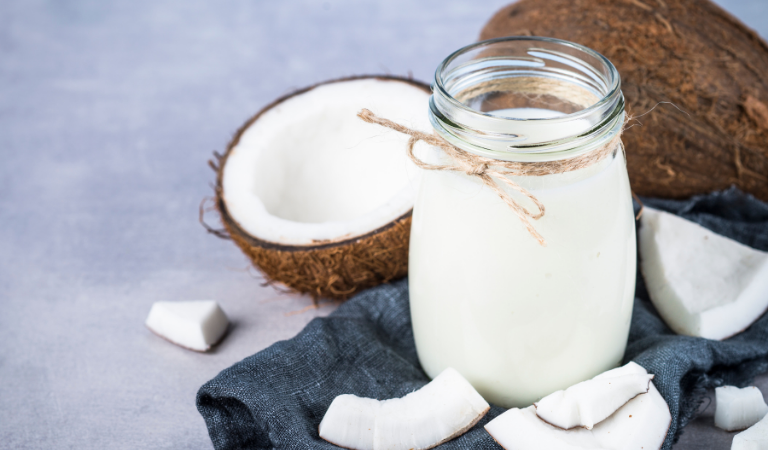
4. Hemp Milk
Hemp milk is made from hemp seeds and water. The hemp plant contains tiny amounts of tetrahydrocannabinol (THC), the psychoactive component of cannabis. However, hemp milk does not possess enough THC to cause psychoactive effects. Hemp milk features a thin, watery texture and nutty taste. This milk substitute has a similar amount of fat as cow's milk but fewer calories, protein, and carbohydrates.
Hemp Milk Health Benefits
- Helps improve skin health and protects against heart disease.
-
Excellent source of calcium, vitamin D, omega-3 fatty acids, and
protein.
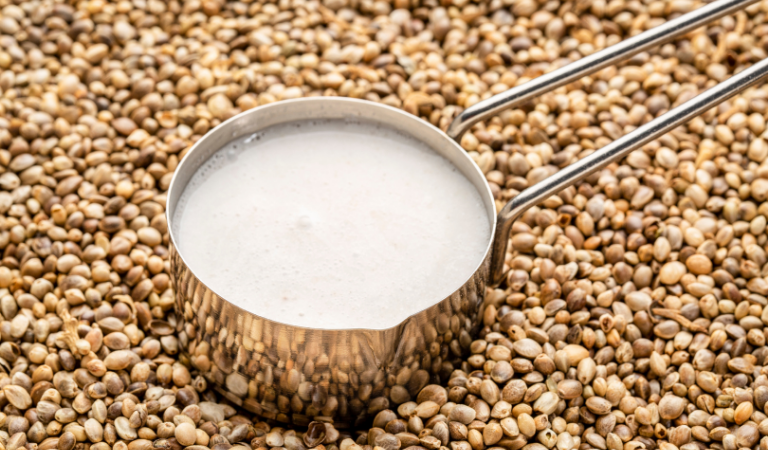
5. Oat Milk
Oat milk is made from a mixture of oats and water. It is sweet and mild in flavor. Oat milk is a beloved alternative because it has a smooth texture and creamy taste, similar to whole milk. It is used the same way as cow's milk in recipes because it is a full-bodied milk alternative. Many individuals who are allergic to nuts or want a dairy substitute that tastes similar to whole milk tend to choose oat milk. This milk alternative contains an equal amount of calories to cow's milk and about half the protein.
Oat Milk Health Benefits
- Boosts digestive health and helps lower cholesterol levels and blood sugar levels.
-
Good source of protein, amino acid balance, polyphenols, and
antioxidants.
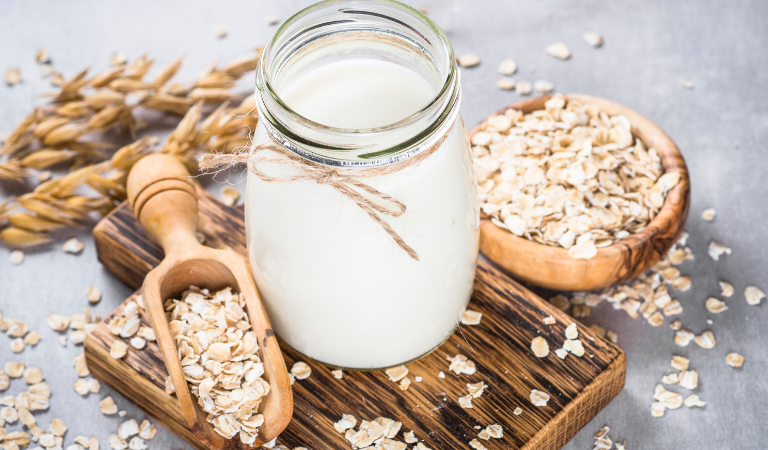
6. Rice Milk
Rice milk is made from white or brown rice and water. It has a watery texture and neutral flavor, allowing the flavors of other recipes to stand out. Some rice milk contains thickeners to help improve its texture and flavor. Rice milk is the least allergenic of non-dairy milk, making it a great option for your customers that cannot consume dairy, gluten, nuts, or soy. It possesses the same amount of calories as cow's milk, but has less protein and more carbohydrates.
Rice Milk Health Benefits
- Helps lower cholesterol and optimize digestion.
- Fortified rice milk features a similar amount of calcium and vitamin D as cow's milk.
-
Contains a high level of inorganic arsenic, making it essential to
consume rice milk as part of a balanced diet that includes a variety
of grains.
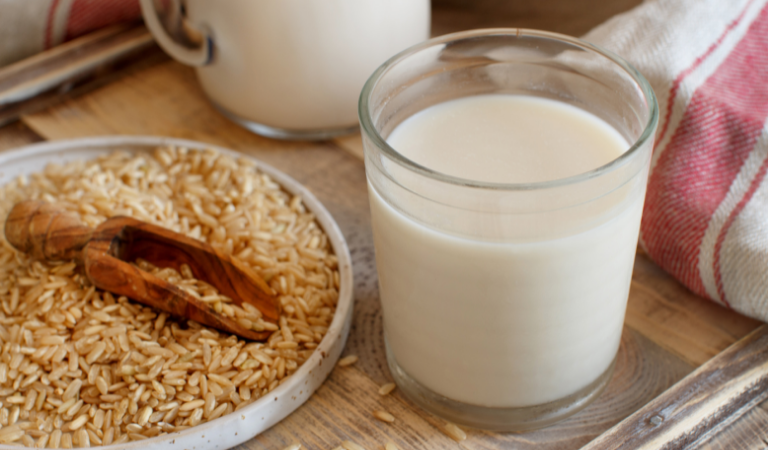
7. Soy Milk
Soy milk is known as the first plant-based milk that provides nutrients in locations where milk was not available. It's also a popular milk substitute for people allergic to nut allergies and who are lactose intolerant. Soy milk is made from soybeans and filtered water and features a smooth, creamy texture with a neutral taste. Soy milk is low in calories and high in protein.
Soy Milk Health Benefits
- Helps protect against cancer and improves cardiovascular health and cholesterol levels.
-
Excellent source of protein, monounsaturated and polyunsaturated fatty
acids, and vitamin B.
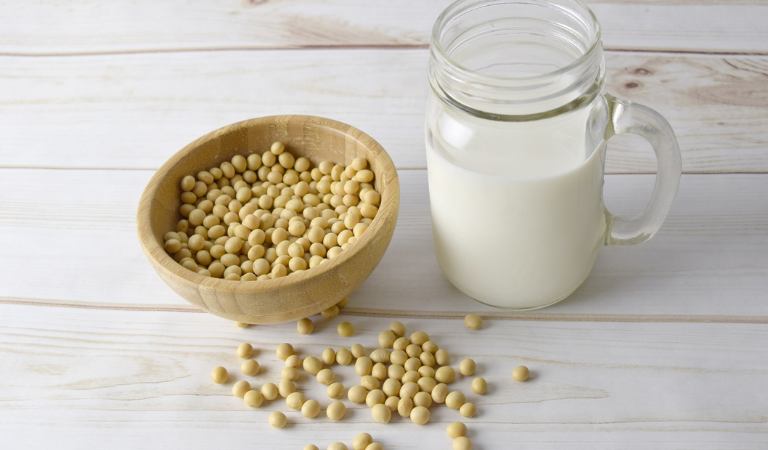
How Restaurants Should Choose Which Milk Alternatives To Serve
With numerous non-dairy options available in the market today, it can be challenging to determine which ones to include in your menu. Before purchasing dairy-free milk for your business, do some research and recipe testing. For instance, if you're planning to use milk substitutes for coffee, experiment to determine which milk alternatives positively affect the taste and texture of your coffee.
You should also consider the allergy risk of each milk alternative. For example, you want to avoid stocking up on only nut-based milk alternatives because patrons with nut allergies will not be able to enjoy them. This makes it essential to have a balance of cereal-based, legume-based, nut-based, and seed-based milk so your business can suit each customer's unique dietary needs.
Begin Offering Dairy-Free Milk At Your Establishment!
The demand for milk alternatives in the U.S. continues to rise, making it essential for foodservice establishments to add dairy-free milk into their menu. It will allow them to serve those with dietary limitations and stand out from the competition. Before purchasing milk substitutes for your restaurant, take a look at your menu. Do you need an alternative with a thick texture like coconut milk or a watery texture like hemp milk for your recipe? Try experimenting with different substitutes to discover the best non-dairy milk alternatives for your business.






